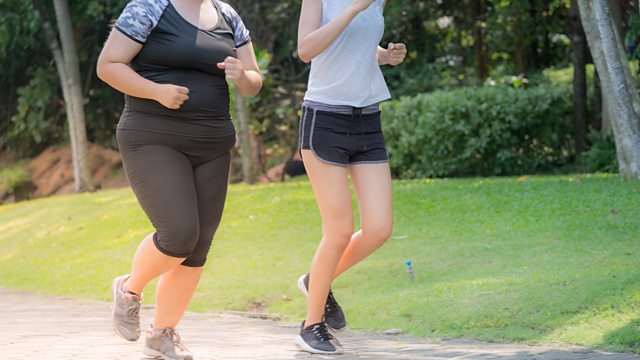Is Slimness in the Genes?
New research on the genetics of “thinness” and obesity; The pregnant women leaving Venezuela for Colombia; Why self-belief improves physiotherapy outcomes for shoulder pain
Sadaf Farooqi, Professor of Metabolism and Medicine at the University of Cambridge, has been a pioneer in the genetics of obesity for more than twenty years, discovering more than a hundred common genetic variants as well as twenty single genes which can make people put on weight from early childhood. Twin studies have shown that about 40% of the variation in a person’s weight is influenced by their genes. And now she has discovered something brand new; why thin, but healthy people have genetic advantages in terms of maintaining a healthy weight. The research has just been published in the journal PLOS Genetics.
In the midst of political chaos and a worsening economic crisis that has seen rampant hyperinflation, widespread food shortages and spiralling crime, Venezuela’s public health system is in a state of collapse. Roughly one in twelve Venezuelans has left their homeland, and almost half of this migrant population is now living in neighbouring Colombia, which is struggling to cope with the rapid influx of new arrivals. Nowhere is the pressure on public health services greater than in Cúcuta, the largest Colombian city along the border with Venezuela and the point of entry for many. It has been estimated that around 35,000 Venezuelan migrants arrive in Cúcuta daily, of which up to 5,000 per day remain in Colombia. In the midst of this health crisis, there has been a mass exodus of pregnant women seeking safer conditions in which to give birth. Theo Hessing travelled to Cúcuta to find out more.
It can be hard to be positive when you are in a lot of pain, but self-belief might be just what the doctor ordered. Researchers from the University of East Anglia studied the progress of adults suffering from shoulder pain as they underwent physiotherapy, looking at 71 factors that could impact their success. They found that confidence in the ability to carry on with daily life and high expectations of recovery, were two of the three most important in making the biggest difference to pain and disability after six months. Lead author Dr Rachel Chester, a lecturer in Physiotherapy at the University of East Anglia, explained more about the power of positive thinking to Claudia.
(Photo caption: Two women jogging in the park - credit: Getty Images)
Health Check was presented by Claudia Hammond with comments from New Scientist Medical reporter Clare Wilson
Producer: Helena Selby
Last on
Broadcasts
- Wed 30 Jan 2019 20:32GMT��ѿ��ý World Service Online, Americas and the Caribbean, UK DAB/Freeview, Europe and the Middle East & News Internet only
- Wed 30 Jan 2019 21:32GMT��ѿ��ý World Service Australasia & East Asia only
- Thu 31 Jan 2019 05:32GMT��ѿ��ý World Service Online, UK DAB/Freeview, News Internet & Europe and the Middle East only
- Thu 31 Jan 2019 06:32GMT��ѿ��ý World Service Australasia, Americas and the Caribbean & South Asia only
- Thu 31 Jan 2019 07:32GMT��ѿ��ý World Service East and Southern Africa & East Asia only
- Thu 31 Jan 2019 11:32GMT��ѿ��ý World Service West and Central Africa
- Thu 31 Jan 2019 14:32GMT��ѿ��ý World Service Australasia
- Thu 31 Jan 2019 18:32GMT��ѿ��ý World Service East and Southern Africa, South Asia & West and Central Africa only
- Mon 4 Feb 2019 02:32GMT��ѿ��ý World Service
Podcast
-
![]()
Health Check
Health issues and medical breakthroughs from around the world.


